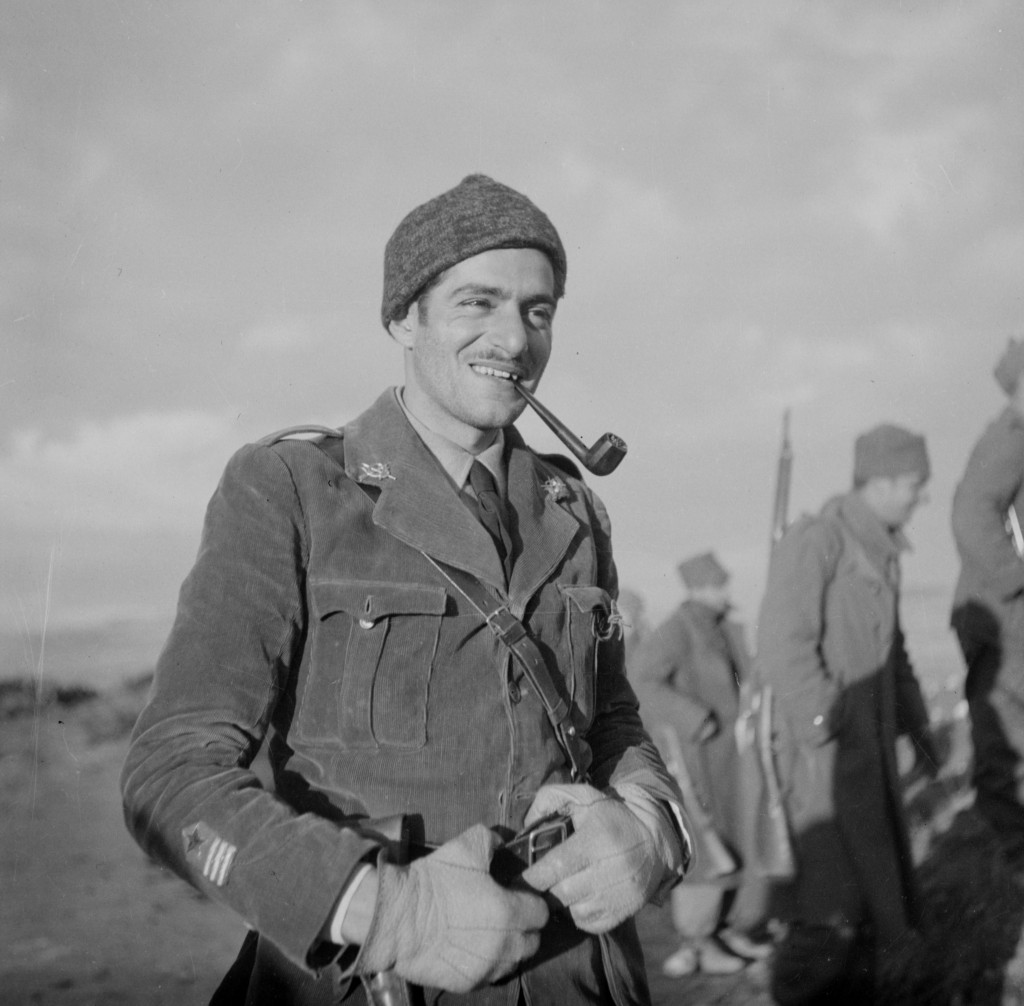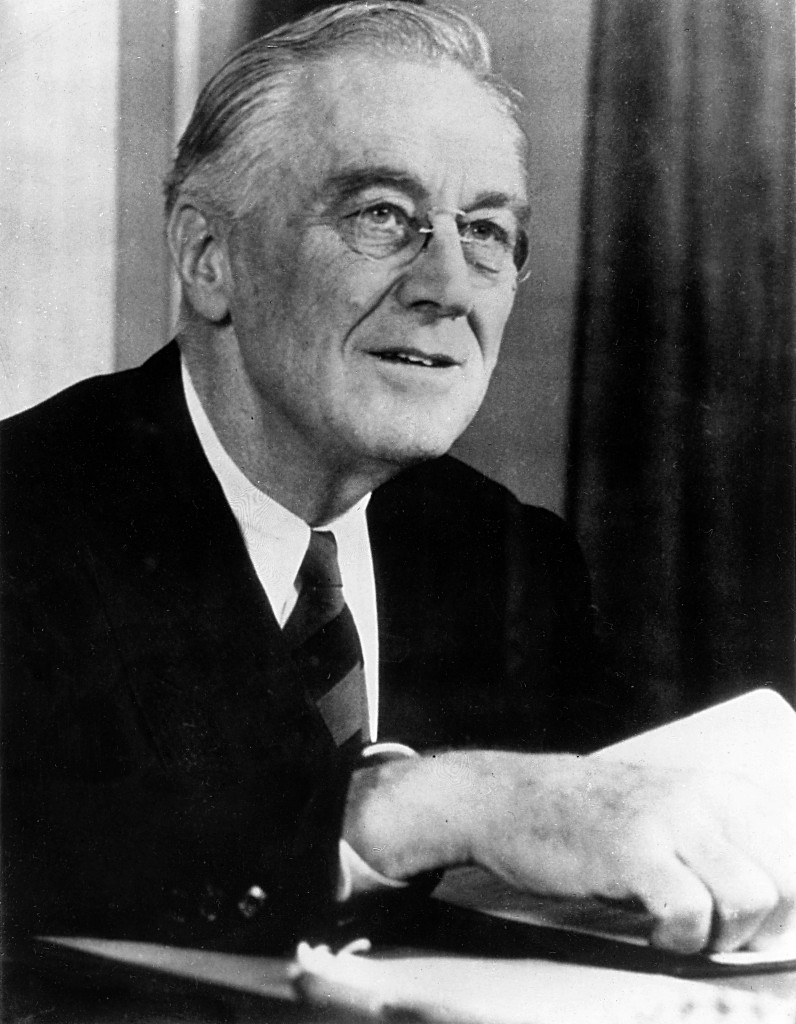The United States and World Fascism: Two Sample Documents
Editors’ Note: Among the dozens of primary source documents in the resource binder distributed to the teachers who participate in ALBA’s teaching institutes are a letter that President Franklin D. Roosevelt wrote to the U.S. ambassador in Madrid in March 1945, and the transcript of a conversation four years later between Milt Wolff, the last commander of the Lincoln Brigade in Spain, and an official from the State Department. The two documents help illustrate the profound shift in U.S. policy toward Franco Spain between the last months of World War II and the first years of the Cold War.
“We do not forget Spain’s assistance to our Axis enemies”
March 1945: FDR Writes to the U.S. Ambassador in Spain
The following is a letter that Roosevelt sent to the newly appointed US ambassador in Spain in March of 1945.
“My Dear Mr. Armour:
In connection with your new assignment as ambassador to Madrid I want you to have a frank statement of my views with regard to our relations with Spain.
Having been helped to power by Fascist Italy and Nazi Germany, and having patterned itself along totalitarian lines, the present regime in Spain is naturally the subject of distrust by a great many American citizens who find it difficult to see the justification for this country to continue to maintain relations with such a regime. Most certainly we do not forget Spain’s official position with and assistance to our Axis enemies at a time when the fortunes of war were less favorable to us, nor can we disregard the activities, aims, organizations, and public utterances of the Falange, both past and present. These memories cannot be wiped out by actions more favorable to us now that we are about to achieve our goal of complete victory over those enemies of ours with whom the present Spanish regime identified itself in the past spiritually and by its public expressions and acts.
The fact that our government maintains formal diplomatic relations with the present Spanish regime should not be interpreted by anyone to imply approval of that regime and its sole party, the Falange, which has been openly hostile to the United States and which has tried to spread its fascist party ideas in the Western Hemisphere. Our victory over Germany will carry with it the extermination of Nazi and similar ideologies.”
“We cannot and will not intervene”

Milt Wolff in Spain, December 1937. (Tamiment Library, NYU, 15th IB Photo Collection, Photo #11_0631)
March 1949: State Department to Milt Wolff
On March 10, 1949, the anguished Milton Wolff paid a call on William C. Dunham, chief of the Spanish desk at the State Department in Washington, D.C. The Franco government had recently sentenced nine Spaniards to death for leading protests against the regime, and Wolff had come to plead for U.S. intervention to save their lives. A transcription of their conversation survives.
Dunham: “Of course, we do not make representations in the cases of avowed communists. You wouldn’t expect us to. Would you?
Wolff: “After all, we have a certain responsibility for the actions of these men. State Department releases . . . and the United States position at the United Nations, all call for a change in the Franco government. That is what these men are trying to tiring about. We should support their efforts by more than just words.”
Dunham: “All our statements specify ‘by peaceful and orderly means.’”
Wolff: “They cannot make a change without organizing and belonging to a trade union, a nationalist group, or a banned political party, and belonging to such a group, or party, is considered an act of violence against the government by Franco.”
Dunham: “Nevertheless, we cannot and will not intervene except in rare cases.”
Wolff: “Not even in the name of justice? Not even if die case is an obvious frame-up and the death sentence is handed down in a summary court martial?”
Dunham: “That is right. But come, they are nut summary courts martial. They are military trials and they are not adequately defended, that is true, but they are permitted to make long harangues in their own behalf before being sentenced. Not half so many are being executed these last months as were executed before. [At this point Wolff apparently made an unrecorded comment.] Ha, ha, ha, yes. . . . Maybe there aren’t as many left to be shot . . . hah, hah, hah. Yes I will send a wire to Culbertson in Madrid inquiring about these names. . . If the men are not communists and haven’t blown a bridge or killed anyone, we might make representations in their behalf.”
Wolff then turned to the question of the Latin American countries reopening their embassies in Spain, with the approval and encouragement of the United States.
Dunham: “Of course! We were against withdrawing the ambassadors in the first place. . . . Never helped any, this withdrawal.” . . .
Wolff: “The withdrawal of ambassadors was a weak move, but it was better than the nothing you all proposed. . . . The thing we want is not a retreat from this weak action, but more positive action—a break in relations.” . . .
Dunham: “Positively not! We are not going to break relations with Spain. . . .There is no support for such action! . . . No, I don’t mean there isn’t any anti-Franco feeling . . . but no support for a break. No, I am not sure how much anti-Franco feeling there is in America. Sure I know about the protests . . . mere form letters and cards.”
Wolff: “A signed postcard is a better gauge of public opinion than a Gallup poll . . . After all, people don’t sit down and write letters . . . They should be paid more attention to.”
Dunham: “That is interesting, the wav you put it I mean. But . . .”
Wolff: “You mean that is the way it is officially considered?”
No reply.
Dunham then expressed uncertainly about the U.S. position regarding the admission of Franco into the United Nations.
Wolff: “Well, you are getting everything worked out the way you want it. You blocked, parried and delayed all actions against Franco since 1945 when there was the best possibility to restore the Spanish republic . . . with this just idea in mind. To sweep another tinhorn dictator into the basement along with the other dictators, kings, etc., that you have already collected.”
Dunham: “You credit us with too much foresight. I am sure that that was not the original plan.”
Wolff: “You couldn’t have planned it better.”
From: Peter N. Carroll, The Odyssey of the Abraham Lincoln Brigade: Americans in the Spanish Civil War. Stanford University Press, 1994.














this is so revealing, FDR’s government not willing to make or take a stance on
the only “right thing to do”
Lots of shame here for the United States.